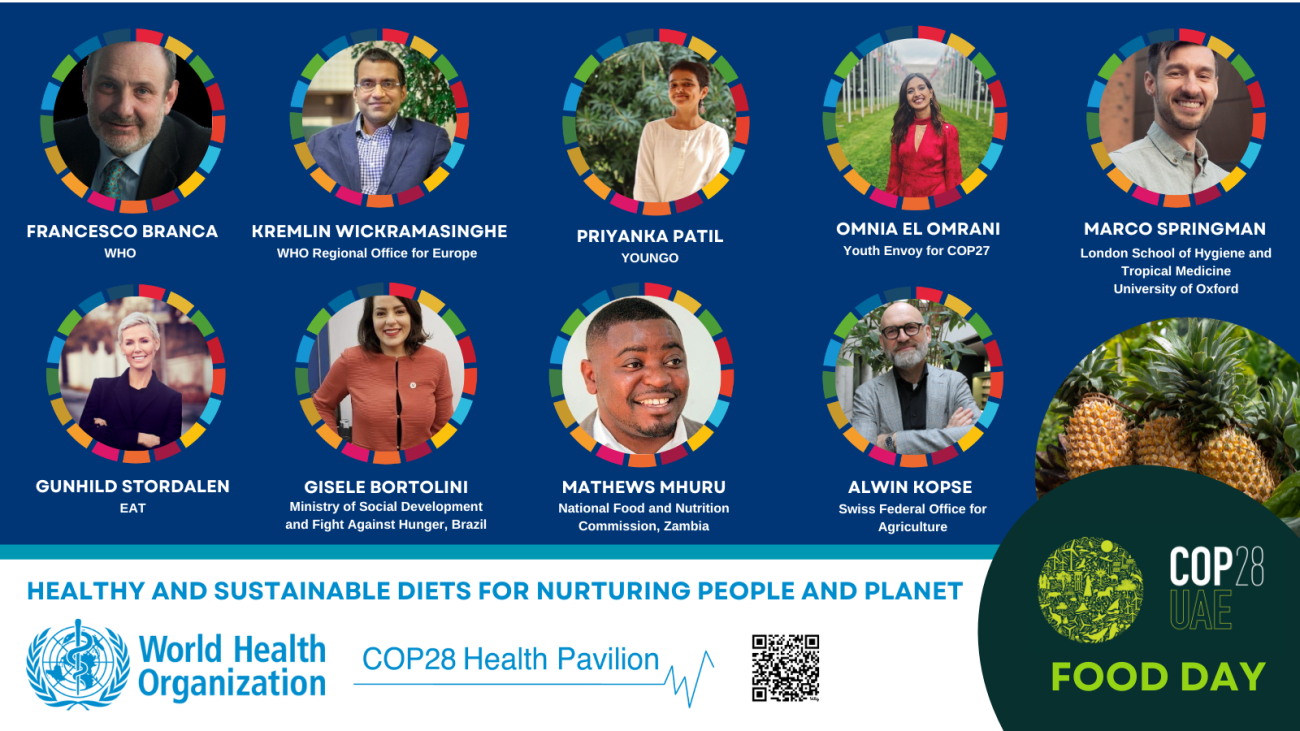Background
Climate change and malnutrition are two of the greatest challenges facing humanity today; these two issues are intrinsically intertwined in a wider context of population and planetary health.
Today, unhealthy diets are a common and pervasive risk factor in all forms of malnutrition, creating unsustainable pressure on public health systems- exacerbated by their role in compounding noncommunicable diseases (NCDs) like obesity, diabetes, heart disease, and some cancers. At the same time, current food systems are among the main drivers of climate change, biodiversity loss, and the depletion of natural resources.
A shift to diets that incorporate healthier foods with lower environmental footprints, has the potential to simultaneously improve human and planetary health, overcoming two of the greatest challenges to sustainable development. Dietary needs, preferences and environmental impacts are highly diverse and require context-specific, equity-sensitive solutions. Numerous tools and policy options are available and successfully implemented by Member States to incentivize dietary shifts and support innovative, sustainable practices at every stage of our food systems to support both nutrition and environmental goals.
Under the auspices of the 28th session of the Conferences of the Parties (COP28) Food Day, the WHO Pavilion hosted this special event exploring tools and policy options to deliver healthy and sustainable diets. In showcasing opportunities and successes, the event aimed to inspire policymakers and other food systems actors to work collaboratively in developing coherent and bold mixes of policies adapted to local contexts.
The event included the release of the exciting new Diet Impact Assessment (DIA) modelling tool developed by WHO EURO, in collaboration with experts. The innovative tool enables Member States to analyse user-specific scenarios of dietary change to estimate the health, environmental and economic burden of each scenario in terms of diet costs, avoidable deaths, changes in resource use and compatibility with global environmental targets. This includes those related to food-related greenhouse gas emissions, land use, water use and fertilizer application and reflects WHO EURO’s work on systems thinking to address the multiple crises to ensure health and wellbeing for all, including climate.
The event also featured speakers from Youth Envoy for the COP27 President, The George Institute, University of Oxford, YOUNGO and a panel discussion to highlight practical examples of the integration of climate and nutrition actions with insights from EAT, Brazil, Switzerland, WHO and Zambia.
Find a full recording on the WHO Pavilion site, here (listed under the recordings for Dec 10th).
